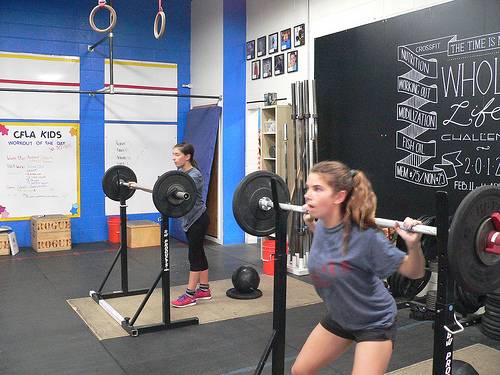Can Lifting Weights Really Stunt Growth?
Sat 25 Mar 2017, 21:45:57

Weightlifting is perhaps the most popular activity with bodybuilders, but weight training is also integral to any fitness and exercise routine. It is crucial for building muscle mass and also helps with weight loss and toning the body. While there’s no disputing these health benefits for adults, children, adolescents, and young adults, who are still growing are often concerned about possible growth retardation that can result from weight lifting. But does lifting weights really cause such a problem or is it just another myth?
Effects Of Weight Lifting On Growth
“Because of the high impact or stress on the joints and bones from weight lifting, there have been fears that weight lifting at an early age can damage the growth plates, stunting growth”
Bone growth in children and adolescents is influenced by the epiphyseal plates or growth plates, which are cartilage plates at the ends of bones. They regenerate and divide throughout the growth phase, promoting bone formation in the process. This process only comes to a halt when you reach your full height, at which point the growth plates undergo mineralization, transforming into the bone ends themselves. Because of the high impact or stress on the joints and bones from weight lifting, there have been fears that weight lifting at an early age can damage the growth plates, stunting growth.
In addition to fears of damage to growth plates from stress, there has also been some concern that increased testosterone production from weightlifting can lead to closure of growth plates, causing growth retardation.
Is Lifting Weights Safe Or Not?
“A 2008 study by researchers from the Veterans Administration Medical Center demonstrated
that increased testosterone levels, associated with weight lifting, don’t necessarily stunt growth, but can actually cause increases in bone length and density”
that increased testosterone levels, associated with weight lifting, don’t necessarily stunt growth, but can actually cause increases in bone length and density”
According to leading experts like Avery Faigenbaum, from the College of New Jersey, the idea that lifting weights stunts growth arises from myths and misinterpretation of study findings that only pertain to small groups. For example, studies focused on athletes or workers in sports and industries suited to people with shorter height, have often been used as evidence for the negative impact of weight lifting on growth. However, more recent studies that weight or resistance training can be highly beneficial for young adults and teenagers. Researchers from Germany’s Institute of Training Science and Sports Informatics in Cologne found that the strength gains were substantial for all age groups. This strength increase does not manifest in bulk, as it does in older adults, which is why the gains were not recognized earlier. Additionally, a 2008 study by researchers from the Veterans Administration Medical Center demonstrated that increased testosterone levels don’t necessarily stunt growth, but can actually cause increases in bone length and density.
This basically means that you shouldn’t believe everything you hear. In the case of lifting weights stunting growth, the argument is logical, but it is now a myth, based primarily on redundant or restrictive study findings that have since been overturned. The evidence today clearly demonstrates that weightlifting can be one of the best activities to include in any fitness program for adolescents and young adults because of its strength building effect, as well as its positive effect on bone growth and density.
No Comments For This Post, Be first to write a Comment.
Most viewed from Health
AIMIM News
Latest Urdu News
Most Viewed
May 26, 2020
Do you think Canada-India relations will improve under New PM Mark Carney?
Latest Videos View All
Like Us
Home
About Us
Advertise With Us
All Polls
Epaper Archives
Privacy Policy
Contact Us
Download Etemaad App
© 2025 Etemaad Daily News, All Rights Reserved.






























